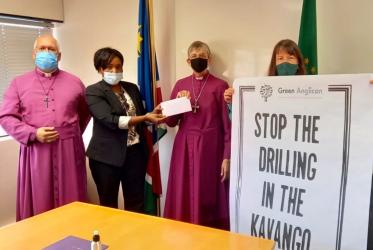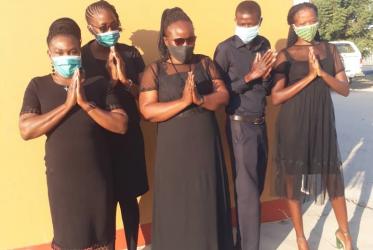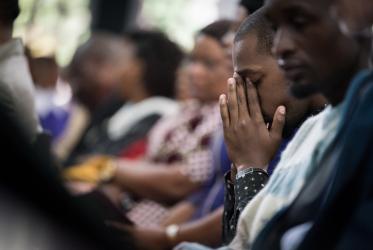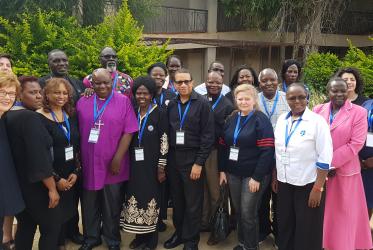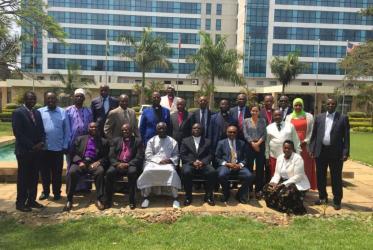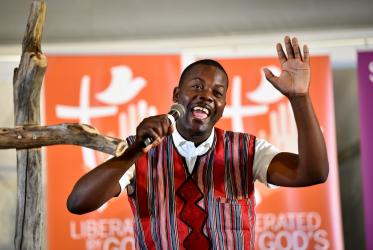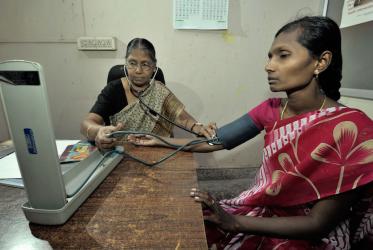Displaying 1 - 20 of 30
Thursdays in Black is growing in Namibia
20 August 2020
Listening together to the pain of violent spaces
28 February 2020
Young Africans are eager to grapple with challenges
09 January 2020
#WCC70: Churches as “freedom agents”
12 February 2018
African women embark on pilgrimage in Burundi
29 November 2017
“Good healthcare a right, not a privilege,” says WCC-EAA
11 October 2017
“It’s time to be brave, to form diverse partnerships”
02 March 2017
“Health and healing for all people, that is the challenge”
28 February 2017
Religious leaders explore message of peace in Burundi, DRC
23 February 2017

